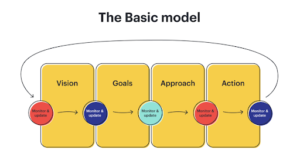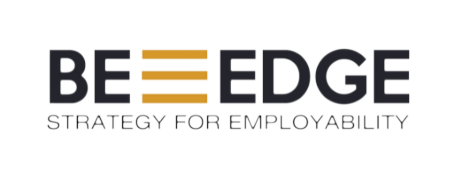
Strategic Planning for a Company
by Mehdi Choufani
August 15, 2024
Strategic planning when running a company can be extremely difficult. What path to choose? Who are the stakeholders? What is the end goal? All these questions need thorough strategic planning. The purpose of this write-up is to illustrate the do’s and don’ts of strategic planning.
Do’s:
- Utilize the practice that avoids jumping into the tactical strategy too soon. When presented with a dilemma, you are an exceptional strategist who immediately suggests solutions. This is a flaw in strategic planning, since you and your team must develop high-level goals and detailed targets based on the purpose. Make a list of every suggestion the group has. Set away these thoughts until you’re ready to draft the tactical plan.
- Take measurements, measurements, measurements! For all goals, objectives, and methods, use relevant, important metrics. What data do you require to make decisions? Keep it simple and meaningful.
- Wherever feasible, assess the quality of your results. Customers’ perceptions of your goods or services are measured by quality. This gives you the most accurate data for making strategic decisions and retains your focus on the objective and the consumer.
- To ensure everyone’s success, give support, resources, training, advice, direction, and coaching. People can’t accomplish their jobs well if they have all they need. The strategy is only as great as its implementation, which is contingent on excellent human resource management.
- DO manage by facts: Our performance is evaluated. The foundation for effective performance is solid planning. Regularly review findings to make decisions and implement. Targets are nothing more than asking whether we are on track. Look for the source of any undesirable outcomes. If you’re not obtaining the outcomes you want, look into the reasons why and adjust your plans or goals accordingly.
Don’ts:
- Make too many aims, or go into more depth than is required. Confusion, contradictory goals, micromanagement, and inability to execute result from having too many details, goals, or objectives. A successful strategy isn’t measured in pounds.
- Forgo or partially complete steps. If you bought a high-end briefcase, you wouldn’t replace the handle, add a new carrying strap, or have it dyed a different color right away. Because you don’t have any data to back up your modifications, don’t mess with the process.
- Do things just because “we’ve always done it” or “I think we ought to do it even if it’s against our goal.” You will overlook inventive alternatives, veer off track, or become reactive if your decisions are not guided by your objective.
- Begin putting down the tasks until the mission, goals, and objectives have been established clearly. The mission establishes the backdrop for the objectives, which are precise, quantifiable outcomes. Choose techniques to help you reach these higher-level objectives from your brain dump at the conclusion
- Ignore measuring because it is difficult. When it comes to customer happiness, staff morale, or performance, measurement may be challenging. Define a method for measuring these intangibles so that you can track your progress during implementation.
- Choose productivity measurements only on the basis of their ease of definition. Productivity, as important as it is, does not indicate if you are providing a service or product that the consumer wants. You can always produce garbage more quickly. You are much more effective when you concentrate on quality because you avoid costly rework.
- Throw folks into situations without equipping them with the tools they’ll need to succeed. Delegation entails determining what the individual requires to do the task and then delivering it. People can only be made responsible for what they can control.
- Manage via fear, blame, or gut instinct. These methods are ineffective because people may conform but are not fully engaged. Don’t make excuses or overlook data that isn’t on goal. Denial is the polar opposite of the “finger pointing.” Investigate, determine the root cause, design a remedy, and plan again if a target or aim is not met. Unfounded optimism isn’t a winning tactic in the actual world.

Strategic planning is making a resurgence throughout the world. It is being adopted by businesses, government entities, and non-profits alike. Despite the fact that strategic planning has been around for a long time and the core tools are widely understood, many leadership teams still struggle throughout the planning and implementation stages. Strategic planning is effective because it regulates the company, allowing it to capture the cognitive energy of all personnel while also guiding it in a defined direction. The plan is in charge. Following these “do’s and don’ts” will assist you in effectively planning and executing your project.
Finally, strategic planning doesn’t solely apply to running a company, but applies to personal strategy. I luckily obtained first-hand experience on personal strategic planning through Dr. Julia Ivy’s course at Northeastern University. The do’s and don’ts listed above can also apply to yourself depending on the context and what you plan on doing. In most cases, personal strategic planning is synonymous to company strategic planning when being handled by the same individual.
References:
https://hbr.org/1975/01/strategic-planning-in-diversified-companies
https://corporatefinanceinstitute.com/resources/knowledge/strategy/strategic-planning/
About the Author
 My name is Mehdi Choufani and I’m from Casablanca, Morocco. I am currently completing a bachelor of science in business administration, and entering the job market in summer 2022. As an international student, I am looking to take advantage of my 1 year OPT and land a job in my field, which is finance. My experience involves working in operations and accounting for two Boston-based companies, as well as interning in numerous Moroccan corporations. This experience, along with my five years at Northeastern, allowed me to gain deeper knowledge on what I want to do, and be able to perform a job well.
My name is Mehdi Choufani and I’m from Casablanca, Morocco. I am currently completing a bachelor of science in business administration, and entering the job market in summer 2022. As an international student, I am looking to take advantage of my 1 year OPT and land a job in my field, which is finance. My experience involves working in operations and accounting for two Boston-based companies, as well as interning in numerous Moroccan corporations. This experience, along with my five years at Northeastern, allowed me to gain deeper knowledge on what I want to do, and be able to perform a job well.


